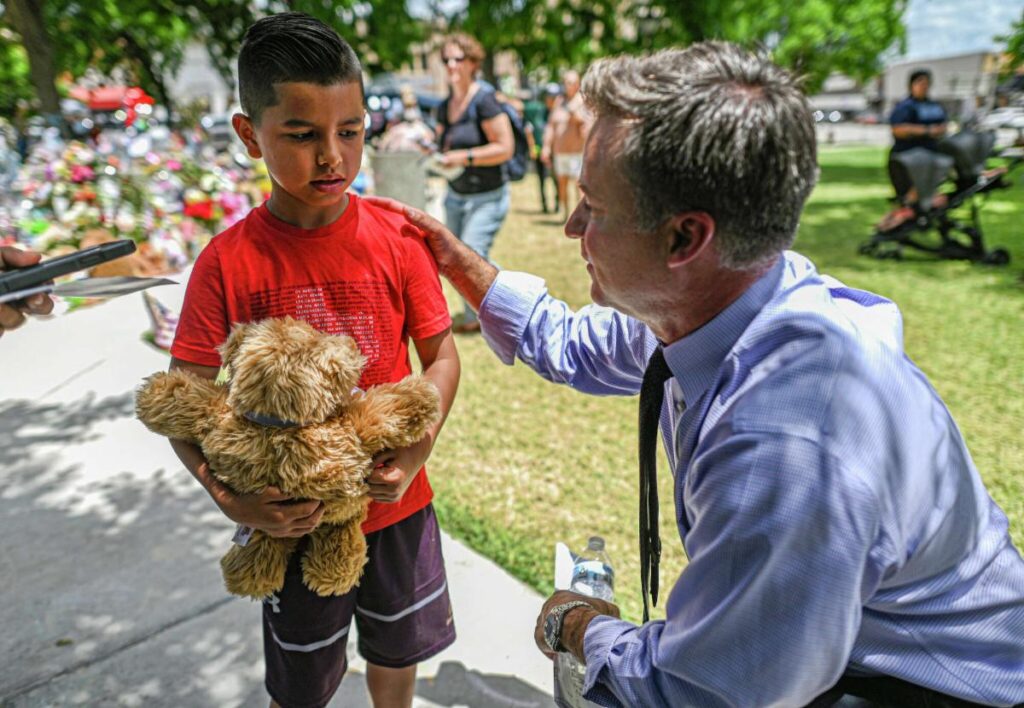Gutierrez says he Uvalde as sympton of a broader issue – it is a story of guns but also of rural neglect, police accountability, and more.
SAN ANTONIO, TEXAS – In the San Antonio Express-News’ profile of Senator Roland Gutierrez, Cayla Harris explores the impact that the Robb Elementary shooting had on Sen. Gutierrez. The Uvalde senator spent the hours, days, and months following the shooting as a constant presence in the small town that came to embody the neglect of Texas.

“Over the past year, Gutierrez says he has come to see Uvalde as a symptom of a broader issue — it is a story of guns, sure. But it is also a matter of rural neglect, of police accountability, of education, of mental health, of income inequality. And the bottom line is this: ‘No economic issue, no political issue matters if you don’t have your kid’,” writes Harris.
The Republican neglect of Texas in Uvalde resulted in radios that didn’t work on May 24th, a Texas Department of Public Safety coverup of officers that stood by for 77 minutes during the massacre, and families of victims that have struggled to be heard. Senator Roland Gutierrez fought for transparency, accountability, and justice for the families of mass shootings.
More from the San Antonio Express-News:
- “He was 9 months old when his mother died from an infection after a routine surgery. He doesn’t remember Diamantina Gutierrez, whose name means glitter in Spanish. But he saw the impact of her absence every day in his three older brothers’ eyes, the hurt and the anger. He internalized it. ”
- “The scene in Uvalde was unlike anything he’d ever seen — the chaos of cop cars and ambulances with no one inside them; the journalists arriving en masse; the people who’d gathered because they still didn’t know where their kids were. He waited outside the Civic Center that night, along with parents waiting to be told that their children would never come home.”
- “A year later, the images still play in Gutierrez’s mind on repeat — three piles of dead children, teachers’ bodies strewn on top of their students. Blood everywhere.”
###
